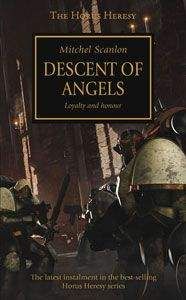Jonathan Howard - Johannes Cabal: The Fear Institute
‘Made enough. The big thing has little ears, but they are very keen.’
Cabal frowned suspiciously. ‘I thought you said you’d never seen it?’
‘Oh, I haven’t.’ The ghoul smiled innocently, which went about as well as could be expected. ‘Not in person.’
‘Why are telling me all this? Why are you talking to me at all? You could have killed me in the dark. What do you want?’
The ghoul’s smile vanished in unexpected ways, as if its face was made of melting wax. When it spoke, the light, bantering tone was gone. ‘I want you to succeed, Johannes Cabal. It is your destiny. If you fail, more than your puerile Fear Institute will be disappointed.’
‘I don’t believe in destiny,’ said Cabal. ‘We make our own futures.’
‘So we do. But I have seen your future, Johannes Cabal, and if you do not find the Phobic Animus, you will lose more than your life or your soul.’
Cabal’s eyebrows raised. ‘I’m not sure I have anything more than those to lose.’
‘Oh, yes, you do. Believe me, necromancer. You do.’ The ghoul paused and looked up at the ceiling, as if listening. When it looked back at Cabal, it said, ‘Your colleagues – I am sure you don’t think of them as friends – are above us now. The two parties are together and they have entered the temple. They are following your tracks through the dust. Soon they will find the disturbance at the place where you fell through into this room and they will attempt to rescue you.’
‘Attempt?’ said Cabal, slowly.
‘Attempt,’ confirmed the ghoul, ‘because you will already have freed yourself.’ It nodded up the short ramp that ran beside it. ‘The door is not locked. I know you would not wish to be indebted to them for rescuing you.’
‘I’m their guide,’ said Cabal. ‘They would be lost without me. Don’t delude yourself into thinking they would rescue me out of any finer feelings.’
‘Guide?’ The ghoul laughed again, a sound like a choking dog. ‘You think they could not hire a hundred reliable men who know these lands better than you, Johannes Cabal? Your usefulness ran out the day you got them to Hlanith.’
‘That is not so,’ said Cabal, although he was racking his brains for a good reason why it was not so, and having little luck in the process.
The ghoul leaped from its resting-place and bounded past him on all fours in a long, fluid lope, like a great whippet with rubber bones. It reached the hole in the brickwork and vanished through it in a blink. A moment later, it leaned its head and shoulders back out and leered at Cabal.
‘Johannes Cabal. Just remember him in your greatest extreme in the next few hours. Remember him.’
‘Remember who?’ said Cabal, raising the light sphere high.
‘Remember Captain Lochery,’ said the ghoul, and vanished back into the shadowed breach.
Chapter 9
IN WHICH A HERMITAGE IS DISCOVERED AND A GREAT TERROR REVEALED
The others were on the point of standing in the wrong place and falling through into the underground chamber, when Johannes Cabal said, ‘Step back from that pew, please. It is the beginning of a short if entertaining ride into the mysteries of the temple’s cellars.’
They turned to see him, standing in a doorway behind them, beating dust from his clothes. ‘We thought—’ Corde stopped himself.
Bose, however, had no such form of manly internal censor. ‘We thought you’d been got! By it! Or something! Oh, Mr Cabal, we were so worried, I can’t tell you!’
‘I think you just did,’ said Cabal, unsure whether to be amused at their childishness or offended that they thought he couldn’t look after himself. Later, he would realise that he had actually been neither of these things but, instead, pleased. ‘Did you see anything else outside?’
‘No,’ said Holk, straight to the point as always. ‘No wamps, and no sight or sound of whatever killed them. Maybe it lost interest.’
Cabal shook his head. ‘No. Whatever else it is, it is very single-minded. It knows we’re here now,’ he looked pointedly at Bose, who blushed, ‘and it won’t stop looking until it finds us and kills us.’
‘It is curious that it is so precise in the way it kills,’ said Shadrach. ‘Not only dismembering its victims, but always making a point of crushing or piercing the skull to prevent a new wamp infestation occurring. For something possessed of such Herculean power,’ and here he gestured at the pathway of shattered walls through the temple, ‘it shows remarkable precision in some of its acts.’
‘It does,’ agreed Cabal. Seen in that light, however, the dismemberment was a strange embellishment. It seemed vengeful and petty, where the skull-breaking was pragmatic and sensible. Still, conjecture was of little use when based upon such a paucity of data. ‘We should move on. The sooner we can find this mysterious hermit and get clear of the city, the happier I think we shall all be.’ There were a few nods to his words, largely from the mercenaries. Cabal picked up his bag from where it lay beside the treacherous pew, and led the way.
They continued further into the interior. Four more smashed walls later, they found themselves in a great open space. The light from Cabal’s dead-beetle-powered device did not penetrate nearly far enough for them to see the whole place, but the mercenaries lit torches and spread out until the limits of the room, at least, were discovered, although the upper reaches of the vast dome within which they found themselves were lost in gloom. Ranked around were scores, hundreds of pews facing a great lectern that rose from the base of one wall, like the prow of a rakish ship, to stop some fifty feet above the ground.
Cabal considered it for a moment. ‘Either this place has excellent acoustics,’ he said, ‘or the priests of old were very loud.’
‘What?’ called one of the mercenaries from a far wall.
‘Well, that answers that question, anyway,’ said Cabal to Corde. ‘Practical archaeology.’
Elsewhere, there were signs that the dome had been undergoing renovations when the city had been attacked. Great wooden beams and scaffolding lay among heaps of wood chips and shavings. Shadrach was wandering among them, illuminated by a beetle light of his own that he must have bought independently of Cabal, to Cabal’s petty and irrational irritation. Suddenly he paused, and looked around the floor by him, patently confused. ‘Over here!’
They hurried to him rather than ran; he was plainly in no danger. When they reached him, it quickly became apparent what had bemused him so. Scattered among the wooden wreckage were several man-sized wooden dummies, like great marionettes. They were crude and bore no features but for a single eye drilled through the forehead, opening into a brainsized cavity. Cabal peered inside, and then, using a foot long splinter that lay by his feet, probed inside the cavity. It came out with more wood shavings on it. Cabal sniffed them before letting them fall to the floor. ‘Ammonia,’ was all he would say. His brow furrowed, and he shushed Shadrach in an offhand fashion when he tried to speak. Finally, Cabal nodded, and muttered to himself, ‘So that is what it meant.’
‘What was that?’ demanded Shadrach. ‘What do you mean, sir?’
‘I mean nothing just yet, mein Herr,’ said Cabal. ‘But I have suspicions. Here, see.’ By the wood debris there were several clay pots, thick hairy string handles tied at their necks. Cabal took one up and held it out to Shadrach.
Shadrach shied back a little, uncertainly. ‘And what, sir, is that?’
‘It does exactly what it says on the label.’
Shadrach peered at it. Indeed, under the dark patches that ran down from the stoppered neck he could make out a label. He squinted closely. ‘“Wood preservative”,’ he read slowly. He straightened up and looked at Cabal with undiluted bafflement. ‘Is that important?’
‘Important? To somebody, yes. To us, it is suggestive. Look how many pots there are. There must have been gallons, but now it’s all gone.’
‘I’m afraid I don’t follow you,’ said Shadrach, slowly.
‘I’d recommend that you do. There is little time to waste.’ He put the pot back on the marble floor with a hollow klop, and walked to the temple’s main door. ‘Barred from the inside. Of course it is.’ He shook his head and came back, a rare smile on his face. For all that, it was a predatory sort of expression. ‘There’s ingenuity here. Also a terrible oversight on his part, but an understandable one. Regrettable, but understandable.’
‘Cabal,’ said Corde, ‘none of us know what you’re talking about. Speak sense, man.’
‘Speak sense? I always speak sense. Apart from that time with the mild concussion, yes, but apart from that, I always speak sense. Don’t you see it? You’ve seen everything I have. Don’t you know what that monster out there is? There’s just one missing factor.’ As he spoke, he was walking quickly down the aisle between two columns of pews, his light held high, looking this way and that. Suddenly he halted and bent down. When he stood up it was with a skeletal limb in his hand.
‘Right arm. Belonged to a Caucasian male in his fifties.’
‘How can you possibly . . .’ Corde paused. ‘Oh, my God.’
‘Gentlemen,’ said Cabal, holding the arm aloft. ‘Allow me to introduce you to the object of our expedition to this place. I give you, the Hermit of the Nameless City.’ He dropped the arm, the bones rattling on the marble floor in an awful silence. And then a terrible thing happened.
Johannes Cabal giggled.
He felt giddy, ebullient, strange. Something was wrong. Something was terribly wrong at the edge of his understanding, and he feared it. It waited for him, and he knew he could not avoid it. Soon, he thought, I shall be dead.
His sojourn in this strange fugue was short, but even so, he was treated to the sight of his seven comrades in adversity all wearing similar expressions of horrified bafflement, the sort of expressions they might have worn if he had vomited millipedes while toy trains shot out of either ear. ‘Look at you all,’ he said, scorn in every syllable. ‘Gawping like simpletons.’
‘You . . .’ Shadrach was momentarily unable to communicate the full enormity of what they had just witnessed. ‘Cabal . . . you . . . giggled.’
‘Which is cause for standing around like moonstruck zebras?’ They had all commented upon the zebras’ vacuous expressions on seeing a full moon during the journey. Cabal permitted himself the indulgence of a luxuriant sneer. ‘You do not know me. Do not presume to imagine that you do.’
It was a magnificent act, for behind the façade he was as astonished as any of them and, more, he was unnerved. He doubted he had giggled since his teenage years; its sudden reappearance, and at such a fraught time, smacked of hysteria. He had never been hysterical – angry, yes, incandescently so, on several occasions – but he had never so utterly lost control as to make that horrible tittering sound.
He faced them down until they looked away rather than meet his eye, his stoic aspect dispelling any fears as to his state of mind. He was very clearly a man in control of himself, and therefore they might permit him control of their destinies, at least in the short term.
Now all business, Cabal looked around, sidling up and down the aisle and occasionally pausing to look under pews.
‘Mr Cabal?’ said Bose hesitantly. ‘What are you looking for?’
‘His skull,’ replied Cabal, without pausing. ‘It may prove useful.’
‘For what?’ asked Corde, but Cabal was not in the mood to enlighten him, and from the looks the others were giving him, Corde decided that it was not the time to press the matter. They scattered and started searching in the same slightly mannered way that one might adopt while helping a stranger hunt for lost keys. After five minutes of quiet diligence, Thirsh – one of the mercenaries – held up his hand and called, ‘Here, Master Cabal!’
Cabal was with him in a few moments, and between them they dragged out the semi-mummified torso and head of a long-dead man. ‘Over here,’ Cabal ordered Thirsh, ‘in the open area.’ They pulled the partial cadaver up the aisle to the clearing beneath the lectern, Cabal by putting his hand inside the empty right arm socket, Thirsh rather more fastidiously by gripping the left clavicle. Still, he was glad to let go when Cabal told him to, and stood off to one side, dusting off his hand on the side of his Romanesque centurion’s skirt for quite a long time afterwards.
Cabal, meanwhile, was studying the body. ‘Evidently he died in the same way as the wamps,’ he said, carelessly gesturing at the empty places where most people liked there to be limbs. ‘The skull is partially crushed, too. Enough to prevent a new wamp spontaneously generating within, but not quite as violently as we’ve seen previously. Sloppy. Very sloppy.’
‘Does it matter, Mr Cabal?’ said Shadrach, snippy with disappointment and frustration. ‘We should be getting out of here with all possible dispatch! Come along! If we are quick, we can gain the outskirts by nightfall.’
‘Yes, we can do that,’ admitted Cabal, as he opened his bag and looked through the contents, ‘but wouldn’t you rather learn the whereabouts of the Phobic Animus?’
Shadrach gave a short, unamused laugh. ‘From whom, Mr Cabal? From whom? From the dreadful monster that apparently seeks to kill everything in this city? Shall we ask it, hmm? Clarify the etiquette in that conversation for me, Mr Cabal. Do we ask it before, after, or while it is tearing our arms and legs from us?’
Cabal sighed. ‘Everybody is such a critic. No, I do not suggest that we interrogate the monster, not least because it is not a monster in the sense that you imagine, nor because it will have little of import to tell us even if we found a way of communicating, and finally – most tellingly – because we have a far more immediate and useful source right before us.’ And here he made a distracted gesture at the corpse while he continued to search through his bag.
There was a silence, during which the mercenaries frowned even as the penny dropped for the Fear Institute members. ‘Ooooh,’ said Bose, the slowest to cotton on. ‘Of course. I keep forgetting. You’re a necromancer.’
This was news to the mercenaries, who all took cautious steps back from Cabal.
Cabal hid his exasperation that, even here in this land of wonders, his profession was held in much the same opprobrium as it was in the waking world. He did not hide it well, however. ‘Yes,’ he said, allowing the s to draw out into a sibilant expression of dangerous resentment. ‘A necromancer. Shaking facts out of dead heads is more traditionalist than most of my experiences, but it’s always nice to do something that harks back to the old school.’ He removed a small padded case from his Gladstone bag and opened it to reveal several small test-tubes, each stoppered with wax. ‘One of these might do the trick,’ he said conversationally, laying the case to one side. Then he took the head of the hermit firmly between his hands and, with a sharp twist and the sound of tearing dry skin, muscles and tendons, and the clacking of vertebrae scraping over one another, wrenched it off. He turned away from the hapless torso, placing the head on its stump to glare eyelessly at him. ‘There,’ he said, pleased. ‘Much more convenient.’




